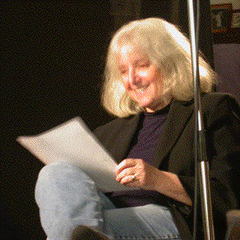Its Memorial Day and I just finished reading Scott Lilienfeld's chilling article, Psychological Treatments that Cause Harm, in the March issue of Psychological Science. He writes about psychotherapies that have the potential to harm people, if not everyone treated, enough people to warrant our calling them "dangerous." Beginning with "Do no harm" Lilienfeld takes us through the dangerous waters of psychotherapies out there today. I am sorry to say that many contemporary therapies hover on the edge of those pointed out as dangerous. We have a day to respect our soldiers, many of whom have died in what they hoped or believed was for the sake of their country, their families and loved ones. We need a day to honor the patients and clients who have been victimized by the professionals from whom they sought help for psychological and physiological disturbances. It is bad enough to suffer from a disorder that causes adverse changes in our thinking, and to suffer from the stigma that comes upon anyone with a mental disorder.
I have seen students riddled with anxiety, after falling into the hands of psychotherapists..
We may have lost more than we realize. I have seen it. I have seen students fall into the hands of therapists who convinced them that their families were "toxic" when their parents were ordinary parents, with good and bad attributes, but nothing extraordinary. I have seen students lapse into unbearable anxiety, as they lost their ties to their major supporters, friends and parents. I hear students speak with enthusiasm of treatments they're learning at the feet of their professors, that come close to making it onto Lilienfeld's lists of potentially harmful therapies (PHT) and I am powerless to do anything about it.
The "Trauma Trap" and "Remembering Trauma
Some hours earlier, late last evening, I reread an older (2004) article by Frederick Crews, "The Trauma Trap" published in the New York Review of Books. He was reviewing a magnificent book by Richard McNally, "Remembering Trauma." McNally brought out all the science, and it all makes it clear that people don't forget traumatic experiences, in fact they remember it better than ordinary life events. Crews wrote a brilliant review of McNally's book, and made clear the pathetically weak position taken by our "professional" organizations, the American Psychiatric Association and the American Psychological Association. These two article together were chilling, and more so because I hear the echos of bad psychology in my students and I don't know what to do about it. It is impossible to tell students that most of what they are learning is simply wrong. Sometimes I actually say that, and I can see them almost rolling their eyes, thinking that I am a "fringe thinker" because I don't endorse the idea of repression, I don't endorse the theory of childhood trauma, I am sacrilegious. I want to fight for my discipline and at the moment I'm not sure how to do that. People don't repress trauma, they can't forget trauma. People don't get horrific mental disorders because of childhood trauma, but because of genetics and physical environmental insults, viral and bacterial infections, combinations of neurotoxins, and other environmental assaults as yet unknown to us.
It is not the fault of the students..its not the fault of the teachers
We are all the products of our teachers. We are wired to comply with our authorities, all the more so if they are kind to us. Babies imitate at 43 minutes out of the womb, and we all continue imitating. If our teachers tell us that the cure for psychological distress is "catharsis" or breaking through "repression" and remembering trauma, we try to believe it. There was a time earlier in my career, when I, in compliance with my mentor, wrote about repression. I think I didn't believe it even then. But I said and wrote the words. Lilienfeld names some treatments that have been shown in repeated empirical studies to cause harm to some people. He speaks of "recovered memory techniques." But isn't all psychodynamic psychotherapy one form or another of recovered memory treatment? Where is the psychodynamic psychotherapist who doesn't work to help patients "uncover" their long forgotten traumas? No matter that the memories uncovered are false. This remains the goal of psychodynamic therapy. Practitioners in our field believe in repression, and no mounting evidence makes a dent in their belief. Even Cognitive Behavior therapists have caved in to the myth of childhood trauma, and given it the name "core schema's" derived from experiences in childhood. Where is the therapist today who will stand up and say "I don't believe in repression and I don't believe psychopathology is connected to childhood trauma?"
It takes enormous courage
After spending hundreds of thousands of dollars for many years of treatment, it takes great courage to stand up and say "I don't believe in the theory of childhood trauma, I don't believe in repression." It takes even more courage for the therapist who has been treating people for "ghosts in the nursery" to stand up and say "I misled all my patients, I led them into a dead end street and kept them there walking in circles." Lilienfeld and Crews have courage, but what about their colleagues. How many of them are ready to confess to years of misleading people who came to them for their expertise? This is not just a problem for therapists and patients in treatment, its a problem for all of us. This is a massive social problem that affects us behind our backs. The pop culture endorses repression and the myth of childhood trauma. Patients with serious mental illness have to endure the results of their illness, the ramifications of social stigma, and the attitudes of their treatment providers. People in therapy are told they are sick, when many of them are, as Adler said so long ago, simply discouraged. People are told they are in the grip of a maladaptive and antisocial unconscious, they can't trust their own perceptions and their own emotions. Therapists believe they know more about their patients' minds, than do the patients themselves.
We have to change psychology
This is a cruel system of treatment, and this is a cruel culture of pop psychology.
Do no harm seems like an oxymoron in our current psychotherapy culture. We have to change psychology in the culture and in the treatment room.
Subscribe to:
Post Comments (Atom)


2 comments:
Hi Dr. O'Connor--
It's Cindy again. Great post on your blog!! Interestingly I just spent all weekend writing about this topic from a historical point of view. My paper was on Ferenczi, who at the origins of psychoanalysis believed trauma really occurred, while Freud saw it as fantasy. His ideas of revisiting the trauma are those which you state cause "harm."
I understand your concern about alienation from family members. I am confused by your denial of any trauma. Many individuals are truly abused in my clinical experience, both physically, sexually not to mention emotionally that to deny the existence would also cause harm. It is not that I think a cutoff from family member is the answer. Much abuse in the form of less severe transgressions such as invalidation, negative criticism and projection occur in our world on a regular basis. This in itself creates mental health problems, both in the individual client and within relationships.
Perhaps the question is not do we treat these behaviors by defining them as mental illness, but do we teach alternative ways of interacting and being in the world. Behaviors such as respect and acceptance could be in taught in the realm of psychological treatment so that a person can become a more functional human being.
The issue of harm is on my mind each time I meet with a client. The last thing I want to do is create harm in the cloak of trying to heal. Bringing the truth and self-awareness can be painful and may create difficulties in the moment. However, to see the bigger picture of where we came from includes recognizing the gray areas of between good and evil. The knowledge of the past on one's development and perspective today will serve my client positively. To ignore traumatic experiences would also bring harm, would it not?
Cindy
Hi Lynn,
I can't find the article by Lilienfeld. are you sure it's in that issue of Psychological Science? I'm very eager to read it, but I didn't see it listed in their table of contents on Ingenta's website.
Did you get my last email with where I wrote about "adaptive relational psychology"?
How was the Virginia conference?
Geoffrey Locke
Post a Comment